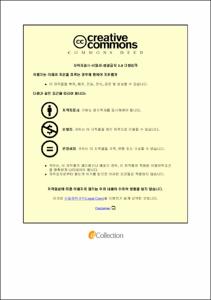항공사 공유가치 창출이 기업-소비자 동일시, 브랜드 태도 및 재이용의도에 미치는 영향에 관한 연구
- Abstract
- Today's consumers are consuming and focusing on the 'cause' that they want to buy a particular company's products and support their activities. The relationship between companies and consumers is deepened through consideration of the 'reason' of consumption. The ultimate goal of brand equity is to create a “relationship” such as a partner between the consumer and the company or brand. The airline's CSV(creating shared value) activity may be a good reason for modern consumers to choose an airline. Therefore, this study focuses on the “relationship” between consumer and airline based on the assumption that airline CSV activities can deepen the relationship between consumer and airline. In addition, we examined whether the CSV activity of airlines could affect the reuse intention, which is a variable indicating the willingness to form an ongoing relationship with the airline. Also, this article suggests the parameters of company-customer identification and brand attitude as a process of reuse intention between airlines and consumers.
In addition, the domestic airline industry market is in fierce, including competition between the FSC(full service carrier) and the LCC(low cost carrier) and competition between the LCCs. Therefore, we want to understand how differences between the FSC and the LCC affect the consumer decision-making process and help establish a marketing strategy that corresponds to the type of airline.
In this study, an online survey and questionnaire survey were carried out on adult men and women who had used airlines within the past year. A total of 397 valid questionnaires were used for the final analysis. The analysis of this study was carried out the frequency analysis to identify the demographic characteristics, the reliability analysis through the Cronbach's alpha, confirmatory factor analysis, correlation analysis, and structural equations modeling using SPSS 20.0 and AMOS 20.0 statistical packages.
The empirical results of this study can be summarized as follows.
First, the reconceiving of products and markets in CSV activities had a statistically significant influence on company-customer identification. Second, the redefinition of productivity in the value chain of CSV activities also had a statistically significant influence on company-customer identification. Third, the building supportive industry cluster at the company's location of CSV activities also had a statistically significant influence on company-customer identification. Fourth, company-customer identification had a statistically significant influence on brand attitude. Fifth, brand attitude had a statistically significant influence on reuse intention. The CSV shows that when consumers identify the company, they show a relatively high favorable and positive attitude, which also affects reuse intention.
Validating the hypothesis that there will be differences depending on the type of airline, Sixth, the difference between FSC and LCC in relation to CSV and company-customer identification was rejected because it was not significant. This suggests that CSV affects company-customer identification regardless of airline type differences. Therefore, airlines should be interested in more differentiated CSV subfactors, considering that there is no difference between FSC and LCC.
Seventh, the difference between FSC and LCC in the relationship between company-customer identification and brand attitude had a statistically significant influence. In other words, in the relationship between company-customer identification and brand attitude, the FSC had a larger standardization coefficient than the LCC. This shows that the FSC has more influence on the brand attitude in the relationship between company-customer identification and brand attitude than the LCC. Therefore, a differentiated strategy should be prepared in which a more positive attitude can lead to reuse intention.
Eighth, the difference between FSC and LCC in the relationship between brand attitude and reuse intention had also a statistically significant influence. In other words, in the relationship between brand attitude and reuse intention, FSC showed lower standardization coefficient than LCC. The impact of brand attitude on reuse intention is greater in LCCs than in FSC. However, as most studies have confirmed, the relationship between brand attitude and reuse intention has a positive correlation, and airlines must continue to carry out activities that can lead to practical use and purchase from reuse intention through continuous CSV.
- Issued Date
- 2020
- Awarded Date
- 2020. 2
- Type
- Dissertation
- Publisher
- 부경대학교
- Affiliation
- 부경대학교 대학원
- Department
- 대학원 경영학과
- Advisor
- 전재균
- Table Of Contents
- 제1장 서론 1
제 1 절 연구배경 및 연구목적 1
1. 연구배경 1
2. 연구목적 7
제 2 절 연구의 구성 9
제2장 이론적 배경 11
제 1 절 공유가치 창출(CSV) 11
1. CSR 및 CSV 등장배경 11
2. CSR의 개념 14
3. CSV의 개념 16
4. 기업의 CSR과 CSV의 비교 17
5. CSV 전략유형 22
6. CSV 선행연구 30
제 2 절 기업-소비자 동일시 35
제 3 절 브랜드 태도 39
제 4 절 재이용의도 45
제3장 연구방법 49
제 1 절 연구모형 및 가설설정 49
1. 연구모형 49
2. 가설설정 51
3. 자료수집 및 연구방법 55
제 2 절 변수의 조작적 정의 및 측정문항 56
1. 공유가치 창출 57
2. 기업-소비자 동일시 57
3. 브랜드 태도 57
4. 재이용의도 58
5. 측정문항 58
제4장 실증분석 61
제 1 절 표본의 인구통계학적 특성 61
제 2 절 측정자료의 신뢰도 및 타당성 검증 63
1. 신뢰성 분석 63
2. 확인적 요인분석 64
(1) 집중타당성 64
(2) 판별타당성 67
제 3 절 가설검증 69
1. 가설검증 69
2. 집단간 차이분석 70
제5장 결론 72
제 1 절 연구결과 요약 72
제 2 절 연구의 시사점 76
제 3 절 연구한계점 및 향후 연구과제 78
참 고 문 헌 80
설 문 지 95
- Degree
- Doctor
- Files in This Item:
-
-
Download
 항공사 공유가치 창출이 기업-소비자 동일시, 브랜드 태도 및 재이용의도에 미치는 영향에 관한 연구.pdf
기타 데이터 / 1.1 MB / Adobe PDF
항공사 공유가치 창출이 기업-소비자 동일시, 브랜드 태도 및 재이용의도에 미치는 영향에 관한 연구.pdf
기타 데이터 / 1.1 MB / Adobe PDF
-
Items in Repository are protected by copyright, with all rights reserved, unless otherwise indicated.